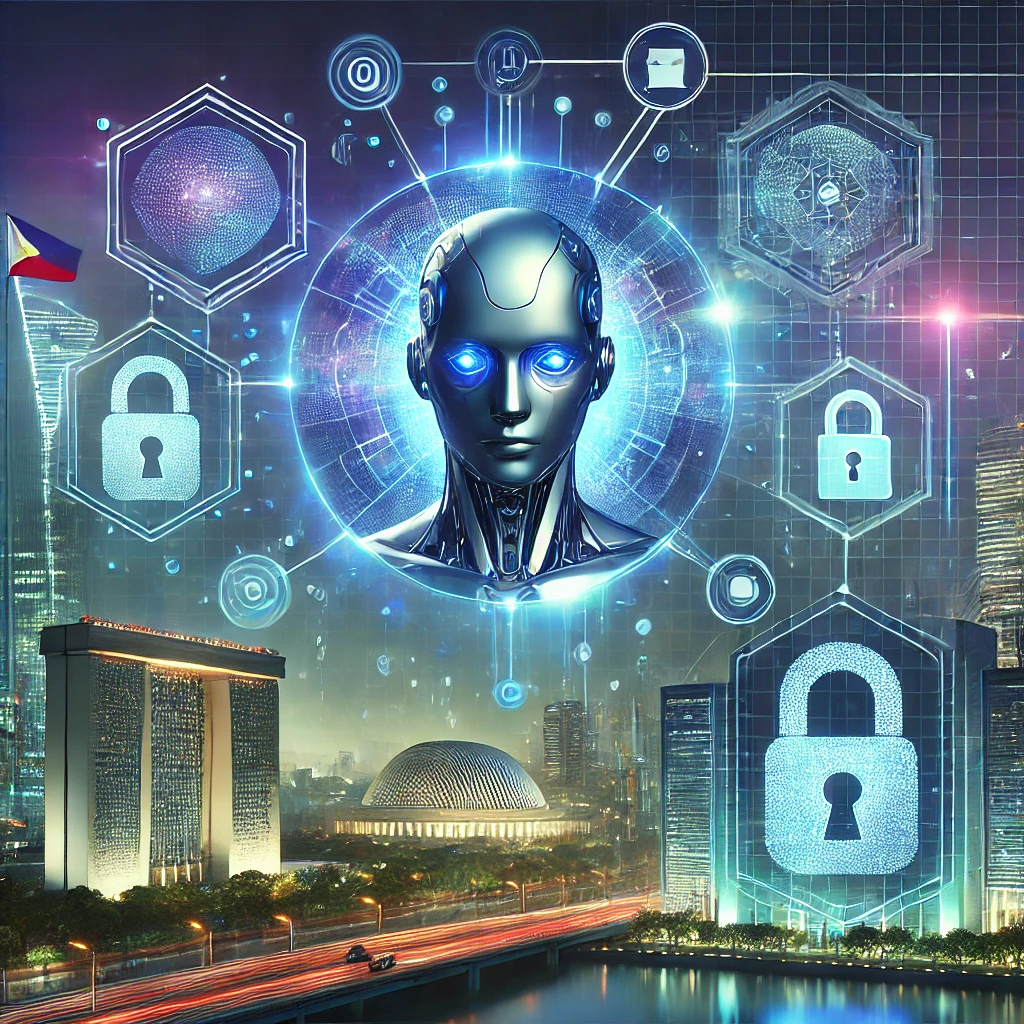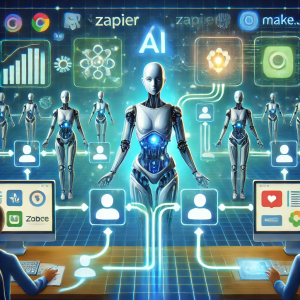Introduction
As the Philippines transitions into a digital economy, cybersecurity has emerged as a critical concern for businesses across the archipelago. In an interconnected world, where data breaches, ransomware, and cyberattacks are rising, the need for robust defenses is more important than ever. Artificial Intelligence (AI) has become a powerful ally in addressing these security challenges. By automating threat detection, enhancing response strategies, and providing advanced analytics, AI is transforming the cybersecurity landscape for Philippine businesses.
Cybersecurity Threats Facing Philippine Businesses
The Philippines, with its growing tech infrastructure, has unfortunately become a target for cybercriminals. From small and medium-sized enterprises (SMEs) to large corporations, no business is immune to attacks. Phishing, malware, and ransomware attacks have plagued the country’s enterprises, resulting in significant financial and data losses.
Common Cybersecurity Threats in the Philippines:
| Threat | Description |
|---|---|
| Phishing | Cybercriminals trick employees into revealing sensitive information. |
| Ransomware | Malicious software that locks systems until a ransom is paid. |
| DDoS Attacks | Distributed Denial of Service attacks overwhelm servers, causing downtimes. |
| Insider Threats | Employees, intentionally or unintentionally, leak or misuse company data. |
| Malware | Malicious code designed to disrupt, damage, or gain unauthorized access to systems. |
The Role of AI in Cybersecurity
AI has proven to be a game-changer in cybersecurity by providing businesses with the tools necessary to detect and mitigate threats faster than humanly possible. Here’s how AI is making a difference:
1. Automated Threat Detection
AI algorithms can process large volumes of data at lightning speed, identifying anomalies or potential threats before they cause harm. Traditional cybersecurity methods are often reactive, meaning businesses discover attacks after the damage has already been done. AI, on the other hand, can predict and prevent attacks by analyzing data patterns and recognizing abnormal behavior in real-time.
2. Advanced Analytics and Response
AI-powered systems provide businesses with real-time insights, enabling them to respond to threats more effectively. These systems can prioritize alerts based on the level of threat, ensuring that cybersecurity teams can focus on the most pressing issues. This is particularly important for businesses in the Philippines, where cybersecurity expertise may be limited, and resources need to be allocated efficiently.
3. Continuous Learning and Adaptation
AI systems continuously learn and adapt to new threats. Unlike traditional systems, which require regular updates and patches, AI can evolve on its own by learning from past incidents. This capability is crucial as cybercriminals are constantly developing new tactics to bypass security measures. By deploying AI-driven solutions, Philippine businesses can stay ahead of emerging threats.
4. Enhanced Data Protection
Data breaches can be devastating for businesses, leading to financial losses and damaged reputations. AI can help protect sensitive data by detecting unauthorized access attempts and ensuring that only authorized individuals can access specific information. Machine learning algorithms also play a role in encrypting and securing data stored on company servers, making it more challenging for hackers to exploit vulnerabilities.
5. Improved Incident Response
When a cyberattack occurs, every second counts. AI helps businesses automate their response strategies, ensuring that threats are neutralized quickly. For instance, AI can automatically isolate compromised systems, block suspicious IP addresses, or shut down malicious activity without waiting for human intervention. This swift action can prevent the spread of an attack and minimize damage to the business.
Why Philippine Businesses Should Embrace AI in Cybersecurity
Philippine businesses, especially SMEs, often struggle with limited budgets and expertise in managing cybersecurity. AI can offer cost-effective solutions that reduce the need for large cybersecurity teams while still providing robust protection. Additionally, as the Philippine government rolls out initiatives such as the National Cybersecurity Plan 2022 to protect the country’s digital landscape, adopting AI-driven cybersecurity measures will align businesses with national efforts.
Moreover, with the rise of e-commerce, financial technology (fintech), and digital services in the country, the amount of sensitive customer data being processed daily has skyrocketed. Ensuring the security of this data is not only a legal obligation under the Data Privacy Act of 2012, but also a trust issue between businesses and their customers.
Conclusion
In today’s digital world, cybersecurity cannot be an afterthought. For Philippine businesses, the integration of AI into cybersecurity strategies is no longer a luxury but a necessity. AI provides enhanced threat detection, faster response times, and the ability to learn and adapt to ever-evolving cyber threats. By embracing AI, businesses can safeguard their data, protect their reputations, and ensure that they remain competitive in a global marketplace.
I, Evert-Jan Wagenaar, resident of the Philippines, have a warm heart for the country. The same applies to Artificial Intelligence (AI). I have extensive knowledge and the necessary skills to make the combination a great success. I offer myself as an external advisor to the government of the Philippines. Please contact me using the Contact form or email me directly at evert.wagenaar@gmail.com!
[SEO optimized]


Pingback: Coming up: - evertslabs.org